The coronavirus crisis has affected MSMEs disproportionately and has revealed their vulnerability to the supply and demand shock, particularly around liquidity and cash flow. It’s estimated that 40-60% of small businesses might not reopen after the Coronavirus pandemic. 200 million full-time job losses are expected between April and July 2020.
Season 1, Episode 43
Host: Deepesh Patel (DP), Editor, Trade Finance Global
Featuring: John W. H. Denton AO, Secretary General, International Chamber of Commerce (ICC)
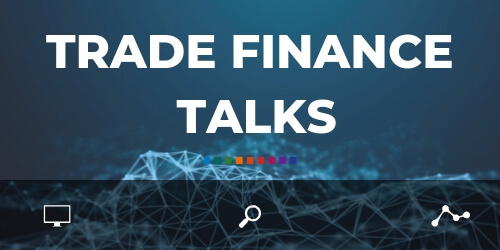
Subscribe to Trade Finance Talks
Trade Finance Talks RSS FeedDeepesh Patel (DP): I’m Deepesh Patel, Editor at Trade Finance Global.
MSMEs are the backbone of the global economy, ensuring the day-to-day provision of so many goods and services around the world. They’re estimated to contribute around 80% of OECD employment in many countries around the world, employing billions of people.
The novel coronavirus is an unprecedented health and economic crisis, forcing millions of MSMEs to close up shop, and some say, that on average, MSMEs have just 30 days of working capital to last in such crises. World Bank Group President David Malpass recently said that “The pandemic and shutdown of advanced economies could push as many as 60 million people into extreme poverty – erasing much of the recent progress made in poverty alleviation.”
More action is needed from governments, private sector leaders and international institutions to ensure the continued viability of our MSMEs.
Today I’m delighted to be joined remotely by ICC’s Secretary General, John W. H. Denton AO.
John W. H. Denton AO (JD): Ah, thanks so much for having me!
DP: It seems like an era ago, since we last talked, I think we were in a windowless room in New York at Finastra’s World Trade Symposium, back in November! A lot has happened since. Before we go into the main part of this interview, I think let’s catch up. I asked you what a day in the life of a secretary general was, for an organisation representing 45 million businesses worldwide – how has your typical work day changed?
JD: Yes! Well, it’s incredibly efficient. It still starts early and finishes late, but it’s lived quite differently. And so it’s now effectively virtual. One of the first things I did when I took over at the ICC was to run a campaign called Digital First. And I’m so glad I did because I shifted the whole organisation to a digital platform in a pretty quick time, like six months, seven months, and then took a little while to convince people about the benefits – they were arguing with people about the need to start using video conferencing and using the digital team’s applications, and it was a ‘oh, no, no, we have to have face to face’! And then, as soon as we went into confinement in Paris (and it was a lot earlier actually than in the UK), we were so glad that we’d actually shifted the whole organisation, not just in Paris, but globally, into a digitally enabled organisation. So we were able to operate seamlessly, but now quite differently.
Frankly, it’s really weird. There are things we can do now that we could never do before. Last week, I organised an ICC conference. We created a Latin America Action Group, which brought together the business communities in 26 countries in one call – one expanded zoom call. 10 days before, I brought together business representatives from 34 countries in Sub Saharan Africa to create our ICC Action Group for SMEs by the way, and it’s interesting – we could never have done that in the real world, because to get everyone into the same location, at the same time, the complexity in doing is just enormous.
However, to do it all on a virtual platform, it’s like, well, of course we can do it. It’s funny – everyone’s kind of available as well. There’s a lot of efficient use of time! And I do town halls now for all staff, once a week, for half an hour, which is a change of pace, we would do a town hall, would be a bigger event, once a quarter, but it’s actually changing the way in which we communicate. So it’s actually quite different. So not travelling – I can’t say I’m missing it, though it does make me wonder how efficient I was before! What you can do now? And I think it will, as I was saying to you before we commenced, we are having some deep discussions now, about how we will work on a continuing basis with our people, and the nature in the way in which we work, must be different.
VIDEO: Inside the DNA of the ICC – TFG Speaks to Secretary General John Denton at the World Trade Symposium
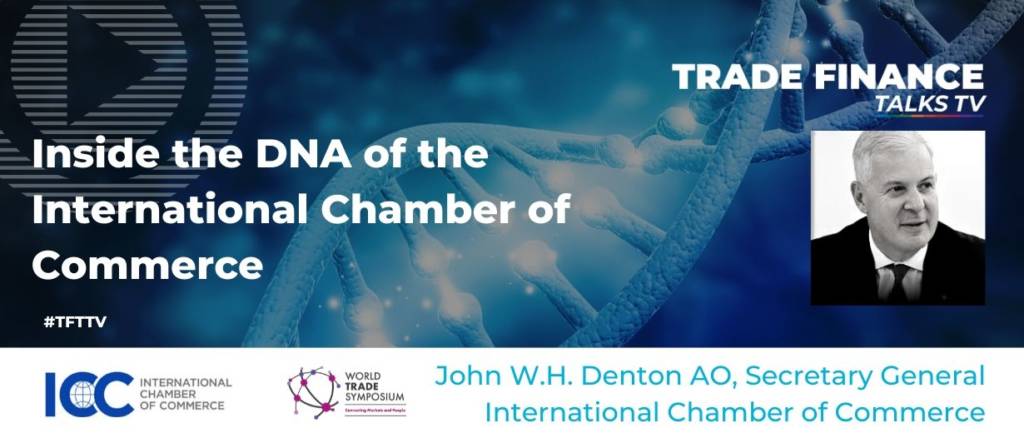
ICC’s Save our SMEs Initiative (SOS)
DP: So I guess moving on to the SMEs part of this, tell me about the ICC SOS or ‘Save our SMEs’ campaign and how you’re working with other ICC national committees to amplify this campaign all around the world.
JD: Well, thanks a lot. I mean, we launched SOS – Save Our SMEs about two weeks into the COVID-19 crisis. And, as you know, one of the problems with COVID-19, is it’s not only pernicious and cruel in its human effects, the way it plays out is deeply troubling as well. It’s asynchronous. So it’s not as though it’s coordinated across the world. It happens at different times and at different intensities in different parts of the world. And so in the Northern Hemisphere, obviously, I’m sitting in Paris – we didn’t necessarily feel the economic effect as quickly as we felt the health effect.
So the health effect, the consequences, the lockdowns, etc., were pretty intense. But I think what most people hadn’t realised was that, before COVID even hit, so a lot of emerging economies like in Sub Saharan Africa, the actual physical impact, the economic impact was already there, because of the collapse of consumption, which destroyed a number of value chains particularly, best example’s always in the garment industry, where the fact that people couldn’t go out to shop in the US, which is the largest consumer market in the world, had an immediate impact on retailers, which had immediate impact on their ordering of inventories, on how they’d actually bring together their supply chains, all the way down to the millions of men and women in Bangladesh, in an economy which it actually has bet on the garments industry, and quite quickly we saw a million people out of work. And so at that point in time, we saw the speed with which this was happening, we also realised that a number of policymakers had not fully understood that this was what we call a ‘real economy shock’; a shock to the real economy.
And they were still looking at it through the prism of how they handled, relatively successfully, the global financial crisis in 08/09. But the reason we focused and characterised this as ‘Save Our SMEs’, is because we had to shift their focus and help them understand that as policymakers, they are actually using the playbook from the wrong crisis. The playbook for the global financial crisis is not the playbook you need for a real economy crisis.
In a real economy crisis, liquidity is actually key, how you get the funds as quickly as possible into the real economy. And saving jobs is actually critical.
John Denton, Secretary General, International Chamber of Commerce
In a real economy crisis, liquidity is actually key, how you get the funds as quickly as possible into the real economy. And saving jobs is actually critical. As you said before, and it’s a truism, that we can see that from even from a relatively significant, but nowhere near as consequential shock, like Hurricane Katrina – 60% of SMEs never reopened their doors after that shock, imagine what this could be like. And that’s why we had to shift the focus as quickly as we could, on mobilising to help in the real economy, and also mobilising the reality that this was not synchronous. And so we’re going to have to deal with this at different times in different places. And one reason that’s important for us, is that not only are we concerned about saving lives here, we’re also concerned about saving livelihoods.
So we launched the Save your Lives and livelihoods campaign simultaneously. And we started working with the WHO. All of those sort of things we did all around, Save Our SMEs. And frankly, we’ve had, I think, a pretty extraordinary impact with it. And last week, in the midst of our Action Group on Latin America, we also announced a bold ambition to enable the digitization of a million SMEs, Micro SMEs, across the world because this is going to be another necessary step to Save Our SMEs, we not only need to rescue them, we need to help them rebuild. And a lot of them are only going to have a chance if we can help them digitize.
Save Our SMEs
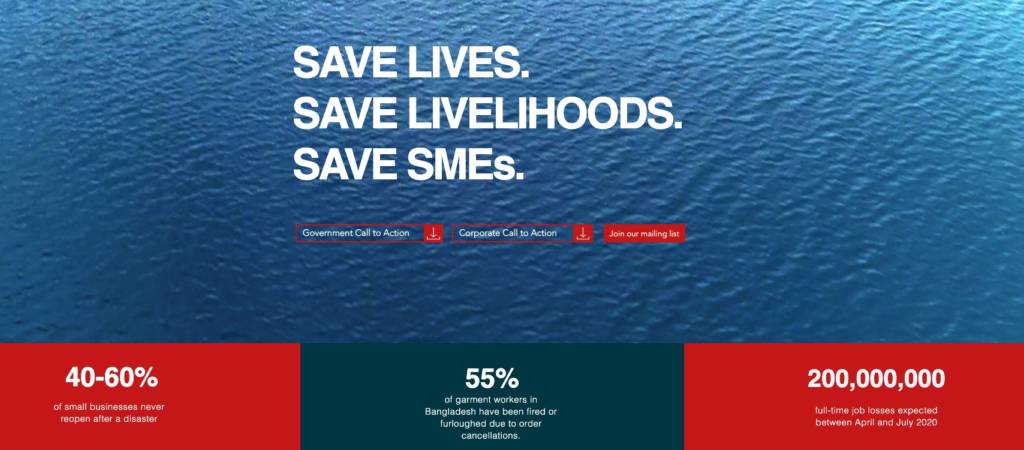
Accelerating Digital Trade Policy – An ICC Perspective
DP: So let’s go into a bit more detail on the trade policy and the digitization element of it. What has ICC been doing to speed up some of those interventions that allow easier trade, for example, customs and trade facilitation, economic policy changes, etc.?
JD: Well, I think, one of the truisms of trade is that it still functions very much in an analogue world. What that actually means is it’s a paper-based world. Similarly with customs, they’re both the essential elements of trade, both from the movement of goods, and also the movement of documentation – this is all paper-based. The actual application for trade finance is often just paper-based and person-based, the actual application for customs clearance – paper-based, for a lot of food, for example, food movements, you actually need what’s called paper and wet signatures. That’s the level in a sense of the dominance of the analogue world in the trade world. So we’ve been arguing for some time, this was under my leadership, I’ve focused particularly on this shifting trade from analogue to digital. We have used this opportunity to first of all, flex our own rules on trade finance, to enable the shift to digital.
We’ve also worked with the World Customs Organisation to facilitate more access to digital, we’re actually working with UNCITRAL on how you can actually pick up and ensure that governments can give the same legal force of recognition to digital documentation as they do the paper-based documentation. We’ve worked hand in glove, for example, in India with the Central agencies there to facilitate this as well. So in a way, we’ve really sped up more than anything else rather than suddenly come upon digitalization as an asset. We’ve sped up our whole process of facilitating the transfer of the trading world from analogue to digital. There’s still more work to be done, because, governments, you know, and it’s really interesting, just looking in Africa, for example, so I’ve been doing a fair bit of work on this Africa Continental Free Trade Agreement, which will be delayed, but we still think this is critical in terms of the economic trajectory for Africa and the support it might have.
But what I was putting out to policymakers there, is that the models already exist to do this. Like in Singapore, for example, they have effectively picked up the UNCITRAL model laws on this area, and are actually implementing them. You don’t actually have to feel like you were bleeding pioneer here, there are actually models all around the world that you can pick up and use – you can actually dictate this from a policy position that you can simply recognise these documents and there is legal force, there are legal prevention’s that can support that, and there are models elsewhere, like in Singapore, etc.
ARTICLE: ICC Digitisation Group publishes digital rapid response measures taken by banks under COVID-19
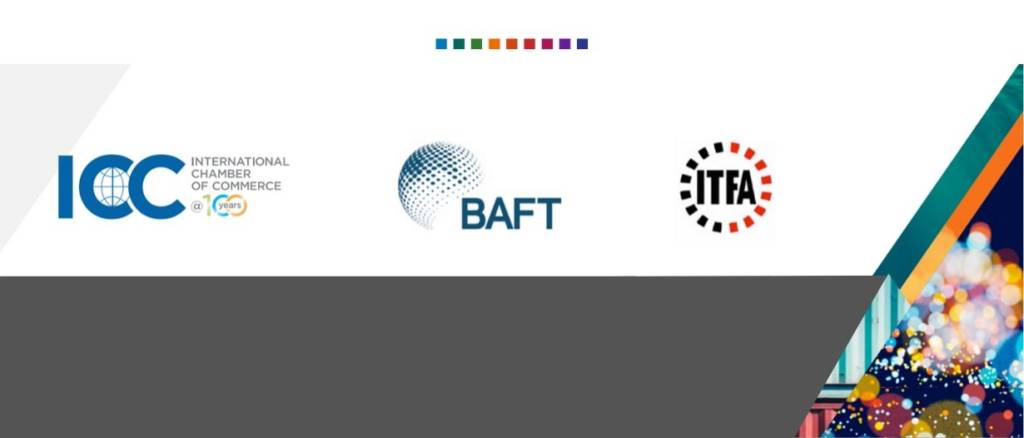
ICC Digital Standards Initiative (DSI) – An Update
DP: So what’s come out of the ICC DSI, the Digital Standards Initiative since launching last year, because I know we haven’t had a lot since announcing the setup of the new operation in Singapore.
JD: Well DSI was always part of a hub in Singapore so we conceived the set-up of future trade in Singapore. Last year, we actually folded that into our digital Academy. Then we were working on a series of digital projects: the creation of blockchain solutions on compliance, the creation of a completely digitalized trade flow, the digitalization of shipping registers, all the elements that actually went to trade. The piece that we wanted to actually start getting focused on as well, was on the policy side, which is the DSI, the Digital Standards Initiative.
And so we actually, we’re working with a group of other people there to support that. We went out to the market to identify the captain. And we’re now in the last stages of moving towards an appointment. So I would anticipate, by the end of June, we’ll be up and running. We’ll have the Head of the DSI initiative appointed. And that issue I was talking about before about analogue to digital, about looking at the various public policy levers that need to be pushed, and the hard yards of standards development, will be pretty well channelled in through the DSI.
Look we’re very excited about it! That sort of rounds out our set up for the future trade centre in Singapore. And to be frank, what we’re then looking at is the creation of another set of hubs around the world, but digital for us and Singapore go hand in hand.
PODCAST: $5 trillion and counting – the MSME Finance Gap
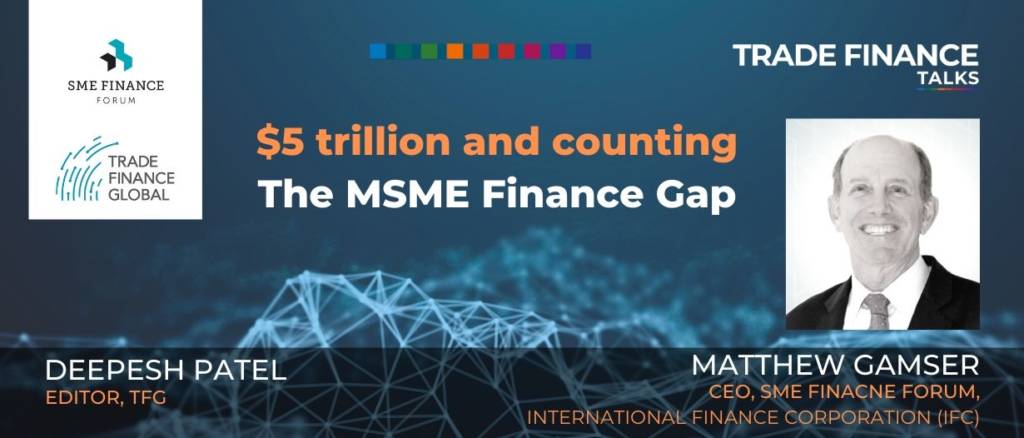
Beyond COVID-19
DP: Okay what do you think are the key actions required by ICC to help us members reverse some of the downward trade patterns we’re seeing as a result of this pandemic?
JD: Well, one of the first things we did, and as you correctly point out, we’re the institutional voice of 45 million businesses, one of the challenges with that, is the businesses and not all in one spot, they’re all around the globe. They’re in the north, they’re in the south, they’re in developing or emerging economies, they’re in less developed countries, there are large businesses, small businesses, some are in the informal economy, as well. And many of them are actually entrepreneurs, seeking to build their careers.
There are lots of different types of businesses. But for example, in emerging economies, one of the things we’re particularly focused on, was helping them build resilience into their business models. You know, for a lot of businesses, they did not have access to business continuity plans. So one of the first steps we took, was to ensure that we had an easy to use set of business continuity plans, which we were able to make manifest and make available across the whole of all the emerging economies in which we work. We also had them translated into six languages, so that they could work, and we then worked with various UN agencies to ensure their distribution. So these are sort of things – there are a lot of practical things we’re doing. And I mean, there’s going to be a really big issue, I think in terms of the financing side, as you say.
I think it’s a truism that most SMEs, micro SMEs, really have about some people say two months, the reality is often only two weeks, which is actually pretty sharp there. So ensuring that they’re thinking about their financing, as you know, in the end, a lack of cash is actually generally what kills businesses, ensuring that they’re actually thinking about those sorts of issues. Ensuring that by having a business continuity plan, they improve their prospects for access to finance, and also realising that there are alternate sources of finance these days. It’s not just banks, we’ve been talking a lot with the various e-commerce platforms. What we’re trying to do is see if we can see what their best practice model is that can operate across the globe. We use it to link up the learnings from an e-commerce platform operating in Turkey, about how they’ve sought to support SMEs and micro SMEs through payment terms, then apply that potentially in Africa, where there’s another set of African e-commerce payment platforms, then use some of those learnings in Latin America and elsewhere.
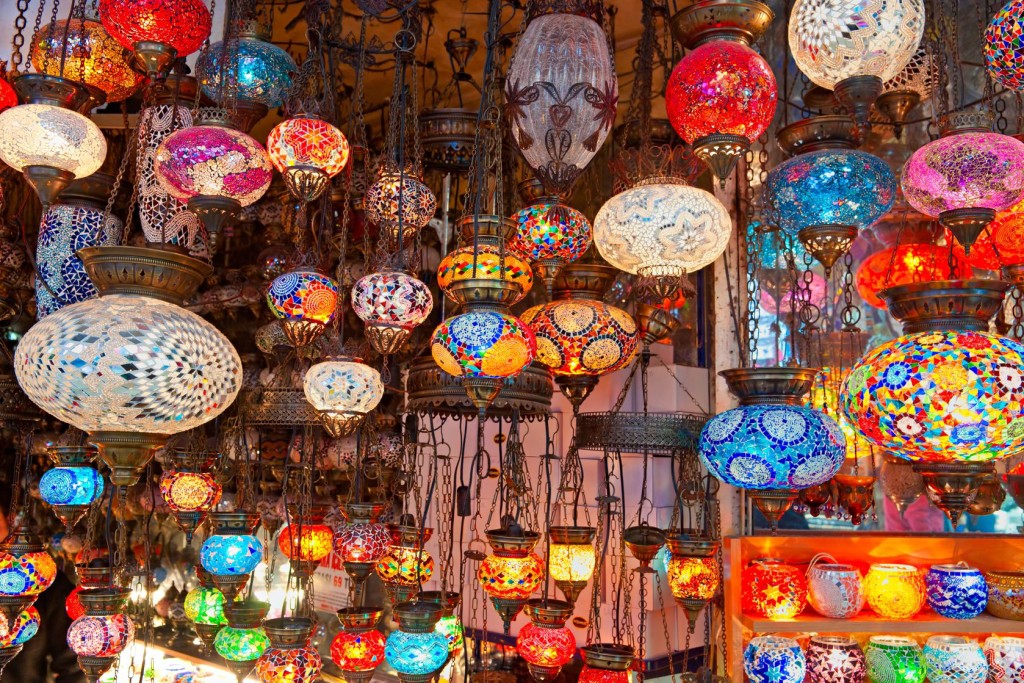
So what we’re really what I was saying there was there we’re looking at alternate forms of financing and making certain that they are aware of and know how and learn from each other. About how to support SMEs and micro SMEs in the various economies in which they operate. In developed economies, it’s a little different, and part of that is actually policy. You know, some governments have done it extremely well, some governments have been more challenged. I think you can contrast the challenges that a number of SMEs have had in accessing financial support in the United Kingdom, compared to the extraordinary ease with which that has happened in Switzerland. You can just see the days saved and days matter when you’re talking about two weeks. And also the cost. The costs of actually going after those loans, getting going after those supports is actually pretty high for a number of companies as well. So we have to make that as easy as possible. There are also practical things.
So I suppose what I’m putting is, first of all, recognising there are regional differences, there are size differences, there’s actually availability, there are different sources of financing available. Different countries have different tools. Different businesses have different tools. So some supply chain leaders have actually found ways of using their supply chains much more readily. And we’ve been very intent on ensuring that as many participants in their supply chains know about these different forms of access to finance, and actually showing other supply chain leaders how they can use it because not all answers will live through access to the banking system. And certainly, we found that for a number of economies, it’s been challenged to actually access government-sponsored funds because of the relative inefficiency or the lack of speed, the lack of speed with which they’ve gone about making those funds accessible. And also some countries don’t have the fiscal headroom to make it sizeable enough.
DP: John, thank you very much for joining us on Trade Finance Talks TV has been a pleasure having you and hopefully the next time we speak will be in person!
ARTICLE: How Trade Finance Programmes at Multilateral Development Banks are closing the Trade Finance Gap

Now launched! Summer Edition 2020
Trade Finance Global’s latest edition of Trade Finance Talks is now out!
This summer 2020 edition, entitled ‘Coronavirus & The Fourth Industrial Revolution’, is available for free online, covering the latest in trade, export credit insurance, receivables and supply chain, with special features on fintech and digitisation.
 Australia
Australia Hong Kong
Hong Kong Japan
Japan Singapore
Singapore United Arab Emirates
United Arab Emirates United States
United States France
France Germany
Germany Ireland
Ireland Netherlands
Netherlands United Kingdom
United Kingdom
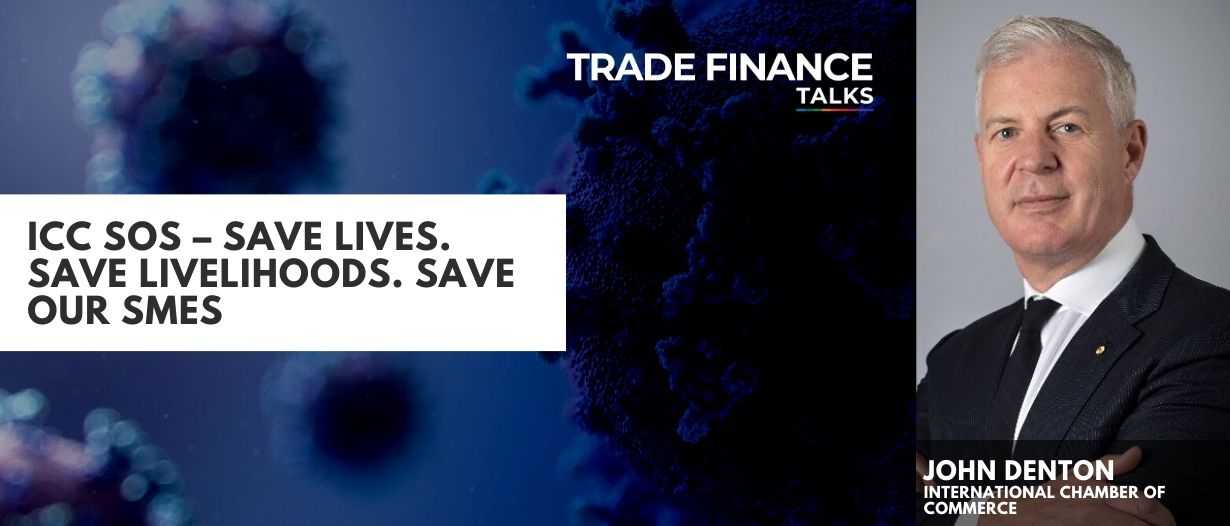
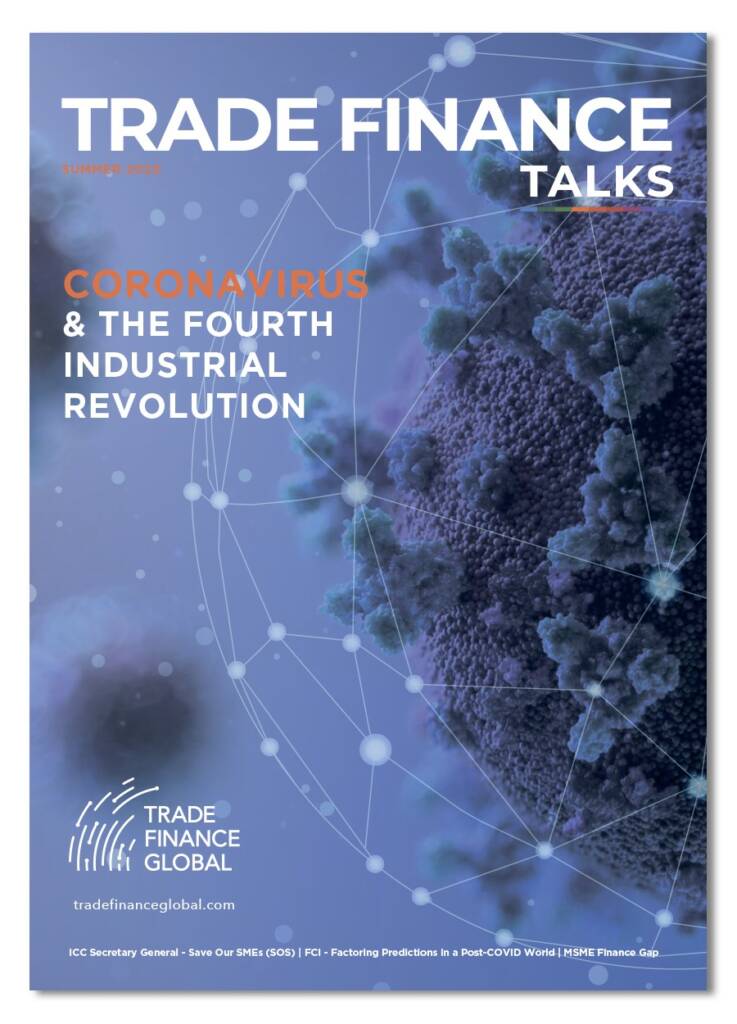
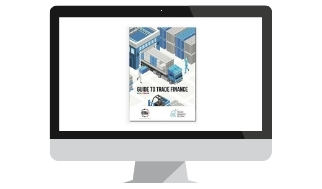

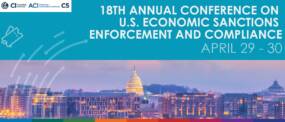

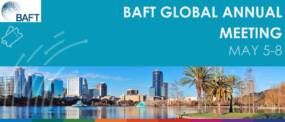



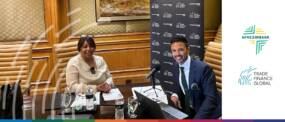
Comments are closed.